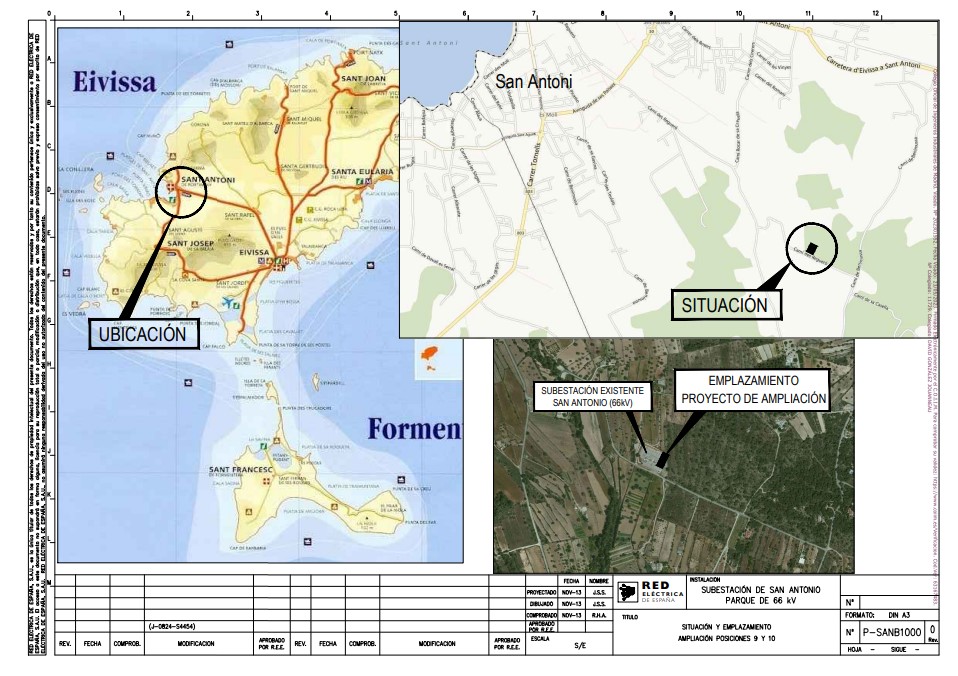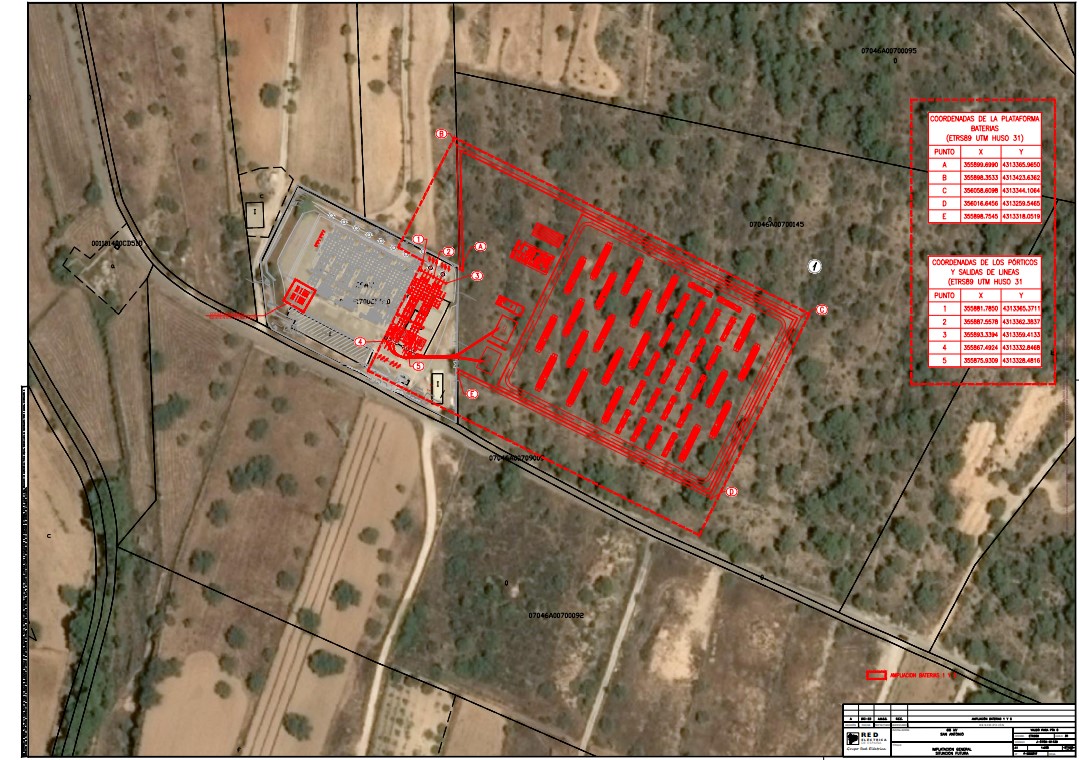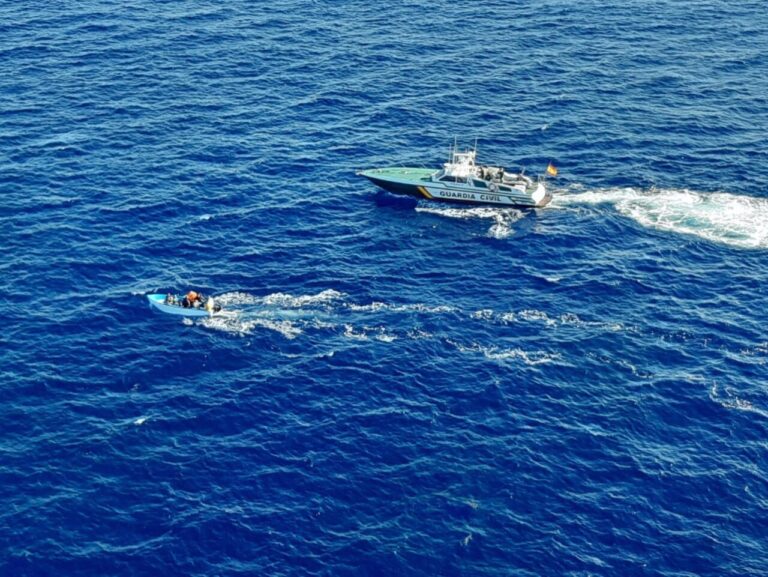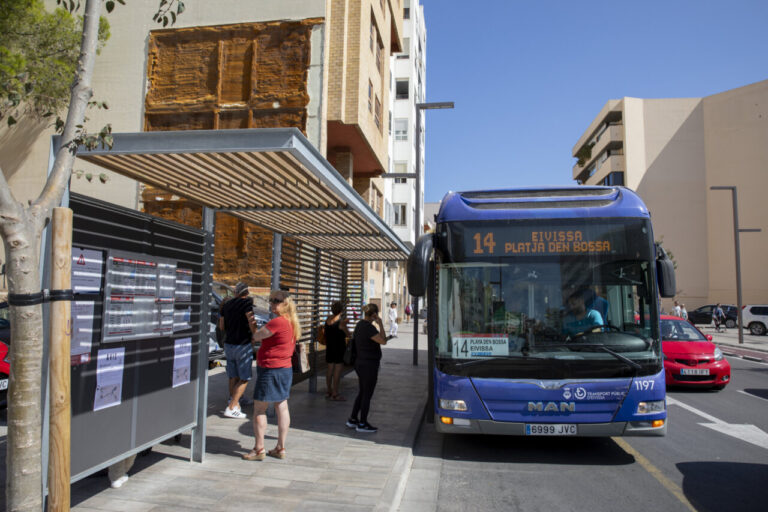The Balearic Government has given the green light to the project for the extension of the substation of Sant Antoni de Portmany and the installation of 66 kV storage batteries, a project that already has the Favorable Environmental Impact Statement and has completed its administrative process. The works are expected to start “in the first quarter of this year” and to be completed within 15 months, with commissioning planned for 2026.
The project, developed by Red Eléctrica de España and budgeted at 76 million euros, involves the installation of two modular storage batteries with a total power of 90 MW (45 MW each) and an energy capacity of 67.5 MWh (33.75 MWh each). They are designed to maximize the use of the submarine cable between Mallorca and Ibiza, doubling its exchange capacity from 100 MW to 190 MW. The basic battery storage installation (BESS or Battery Energy Storage Systems) consists of two types of elements: the batteries with their control and safety systems, and the modules that feed the batteries with electricity and communicate them with the operating system (inverter, transformer and telecommunications). Official sources of the Balearic Government have specified to La Voz de Ibiza that “the project has completed its environmental assessment, with a Favorable Environmental Impact Statement” as well as “all its administrative processing”. Likewise, it has just received a Resolution from the Department of Enterprise, Employment and Energy, granting the Administrative Construction Authorization. The official forecast is to start the works “in the first quarter of this year”, while the expected commissioning date of the project “is in accordance with the contents of the Energy Planning in force”, that is to say, in 2026.

What impact will batteries have on Ibiza?
The storage battery system, fully integrated into the Transportation Network, will enable “maximize the use of the existing link to Mallorca and the benefits inherent in all Balearic submarine electricity links”.
These benefits include reduced operation of local thermal generation, reduced CO₂ emissions, reduced system costs, an increase in the penetration of renewable energies and a greater guarantee of supply. In the case of the link between Mallorca and Ibiza, the electricity interchange capacity will be doubled, from the current 100 MW to 190 MW. This will “significantly reduce the need to operate the Eivissa thermal power plant” and will reinforce the capacity of the link, which already covers an annual average of 65% of Ibiza’s demand. With this extension, the percentage will increase considerably, enhancing the sustainability and stability of the electricity system. In addition, in Formentera, where 100% of the electricity demand is already satisfied with the existing link, the infrastructure will add additional supply guarantees, reinforcing the security of the system between the pitiusas.

Coordination with other infrastructures
This project is coordinated with other strategic initiatives of Red Eléctrica in Ibiza, such as the 132 kV double-circuit submarine link between Mallorca and Ibiza, the Ibiza-Formentera link and the development of the Ibiza South Axis. The latter includes:
- The new 4.7 km underground line between the Ibiza and Bossa substations.
- The 132 kV Sant Jordi substation.
- Repowering of existing overhead lines.
According to Red Eléctrica, “the battery system and the development of the South Axis form an electrically equivalent and more sustainable alternative to the previous Es Fornàs project”. Together, these actions “will decisively reinforce the security of electricity supply, especially in the western part of Ibiza, and will favor the energy transition of the island through existing links”. This positions Ibiza and Formentera as benchmarks in sustainability and modernization of the electricity system in the Balearic Islands.
Neighborhood opposition in Benimussa and environmental impact
Throughout 2023 and early 2024, various protests organized by the Associació de Vesins Davall Benimussa have been reported in which they have expressed their rejection of the project. In addition, the organization commissioned an impact study to the consulting firm Duna Balears, which concluded that the project would have “an unbearable environmental cost” quantified in “more than 15 thousand square meters of vegetation”. In parallel, the Landscape Impact Study annexed to the project concludes that “the landscape fragility can be assessed as low in general, due to the intense fragmentation of the visual basins by the wooded vegetation, which introduces numerous and continuous visual shields in such a flat environment”. In addition, it stresses that “the proximity of the project to a facility of the same significance allows the landscape fragility of the site to be further reduced.” Regarding the elimination of vegetation, the official study explains that the project will be located on “a long-abandoned agricultural plot, today of naturalized appearance, in which there are various specimens of Aleppo pine and scattered junipers, as well as diverse scrubland.” And he adds: “These natural vegetation formations do not constitute a well-formed structure, so the felling of their specimens does not have a drastic visual change in the landscape”. As for the corrective measures, the official report details that “the project has been designed under a strategy of landscape integration, so that they are formally adapted (volumes, height and color/texture of the facades) to the surrounding buildings-installations”.










